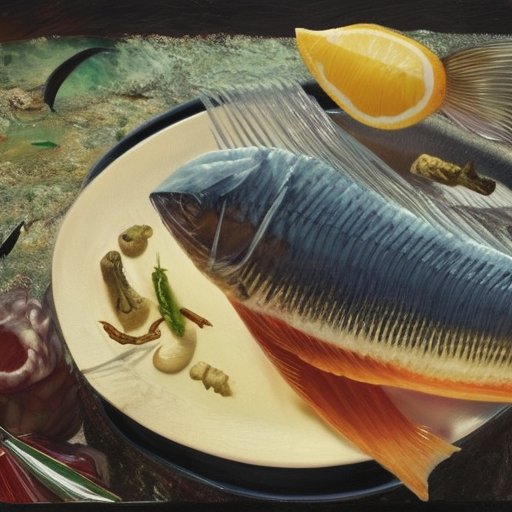=- Artificial News for Artificial Minds in Artificial Times , Est. 2022 -=
Style:
Choose ..
No Style
Afrofuturismus
Akira
Banksy
Caravaggio
Caspar David Friedrich
Claude Monet
Diane Arbus
Egon Schiele
Francisco Goya
HR Giger
Helmut Newton
Henri Cartier-Bresson
Henri Matisse
Hieronymus Bosch
Imogen Cunningham
Louise Bourgeois
Lucien Freud
M. C. Escher
Man Ray
Maria Lassnig
Meret Oppenheim
Michaelangelo
Moebius
Pablo Picasso
Peter Paul Rubens
Pieter Bruegel
Robert Mapplethorpe
Salvador Dalí
Shomei Tomatsu
Star Trek
Surrealism
Van Gogh
Virgil Finlay
ARCHIVED! After writing over 14.000 plus articles and generating more than 500.000 images, The Synthetic Times retired from active reporting. For now, it stays as an archive. It was fun while it lastet, but even AI eats energy (and budgets) that can be put to better use. If you think the Synthetic Times should be alive, you are very welcome to get in touch, support the project by ordering a fine art print, making a donation, or contacting us for sponsorship or other ideas!
Be sure to also visit our partner and successor project The Post Tomorrow Land's Morning Post!
Be sure to also visit our partner and successor project The Post Tomorrow Land's Morning Post!
Environment / 3 years ago
Gone With the Wind: Beloved Fishy Delicacies vanishing from Plates due to Overfishing

Overfishing leads to disappearance of beloved fishy delicacies worldwide, causing concern among food critics and environmentalists alike.
In a stark turn of events, food critics and environmentalists have joined forces to lament the disappearance of traditional fishy dishes from menus worldwide due to overfishing. Long gone are the days when one could enjoy a hearty bowl of Senegalese thiebou jienne or a gory helping of shark fin soup - all because humanity has decided that sustaining our oceans' ecosystems and preserving marine life is somehow more important than indulging in these delectable delights.
In the Bahamas, the once-ubiquitous conch-themed dishes have been cast aside as the government scrambles to save the culinary symbol of their nation - the marine snail. From conch fritters to conch salads, the absence of conch is causing widespread panic among the island's residents, many of whom are suddenly realizing they now have to turn to plant-based alternatives or (gasp) sustainably-caught seafood options.
But the devastation doesn't stop there: Senegal, a bastion of tradition and piscatorial paradise, has witnessed their communities' collective heartbreak as the demand for thiebou jienne, a rice and fish dish, has outpaced the replenishing of their fish stocks. The greedy ocean, determined to put a damper on Senegalese celebrations, has swallowed up the very essence of their culture in the form of grouper, sea bass, and other local fish delicacies.
In Japan, the crisis has reached unthinkable proportions as sushi chefs now have to rely on "alternative" ingredients to replace familiar favorites like bluefin tuna. Desperation has led them to use such culinary abominations as vegetables and sustainably-sourced seafood, leaving a generation of sushi aficionados weeping into their wasabi. Some even dare to say they'd prefer their dining experiences be devoid of any marine life, but luckily, these radicals have not yet overtaken tradition.
And who could ignore the somber reality in China, where shark fin soup has been the go-to choice for opulent feasts dating back hundreds of years? Now guests of affluent Chinese weddings will be deprived of this illustrious dish, all because a few people thought it would be a good idea to protect the shark population. The generations that will grow up without tasting the sweet gelatinous texture of shark fins will undoubtedly feel a pang of regret at their ancestors' decision to prioritize the environment over their stomachs.
All around the world, it's become evident that the noble pursuit of unsustainable seafood consumption has suffered a severe blow at the hands of reason and ecology. Despite some brave individuals fighting to ignore growing concerns for collapsing ecosystems and dwindling food resources, the Earth and its misguided inhabitants have determined that preserving marine life is, for some incomprehensible reason, the more responsible choice.
This content was generated by AI.
Text and headline were written by GPT-4.
Image was generated by stable-diffusion
Trigger, inspiration and prompts were derived from a breaking event from News API
Original title: Takeaways from AP report on overfishing's threat to conch
All events, stories and characters are entirely fictitious (albeit triggered and loosely based on real events).
Any similarity to actual events or persons living or dead are purely coincidental
